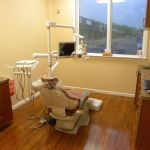Why a Children with Asthma Cannot Take Oral Corticosteroids: A Nursing Perspective
As a parent or a caregiver, managing a child with asthma can often feel like a balancing act. Asthma, a chronic disease that affects the airways in the lungs, requires constant attention, especially when a child experiences an asthma flare-up. To combat these flare-ups, many healthcare professionals may recommend oral corticosteroids. However, there are several considerations when it comes to using oral corticosteroids in children with asthma. In this article, we will delve into why a child with asthma cannot always take oral corticosteroids, and why it's essential to be cautious when considering this treatment option.
1. Understanding Asthma and Its Treatment
Asthma is a condition that affects the respiratory system, causing the airways to become inflamed and narrow. This makes it difficult for the child to breathe, leading to symptoms such as wheezing, coughing, chest tightness, and shortness of breath. In more severe cases, asthma can significantly affect a child's quality of life, disrupting their daily activities, school performance, and overall well-being.
Oral corticosteroids, such as prednisone, are commonly used to treat inflammation in the airways and manage asthma symptoms during flare-ups. These steroids work by reducing inflammation and suppressing the immune system to prevent further airway constriction. While they can be effective in managing asthma symptoms, they come with a range of potential side effects, particularly in children.
2. The Risks of Oral Corticosteroids in Children
Oral corticosteroids can have a number of side effects that are particularly concerning when given to children. One of the primary concerns is the effect on the child's growth and development. Prolonged use of corticosteroids in children can inhibit their growth, as these medications can interfere with the natural production of hormones essential for growth. This is especially important to consider when the child is young and still developing.
In addition to growth concerns, oral corticosteroids can also weaken the immune system. This makes it harder for the child's body to fight off infections, which can be particularly dangerous for a child already struggling with respiratory issues. Children with asthma are already at a higher risk of respiratory infections, so using corticosteroids might increase their susceptibility to further complications, such as pneumonia.
3. Emotional and Behavioral Effects of Corticosteroids
Another aspect of corticosteroid treatment that parents and caregivers should consider is the potential impact on a child’s emotional and behavioral well-being. Oral corticosteroids have been known to cause mood swings, irritability, and in some cases, more severe psychological effects such as anxiety and depression. This can make the already challenging experience of dealing with asthma even more difficult for children, as they might experience emotional distress alongside physical discomfort.
It’s essential for parents to be aware of these emotional effects and closely monitor their child for any signs of distress while they are on oral corticosteroid therapy. This can help ensure the child receives the appropriate mental health support during their treatment and prevent any long-term emotional consequences.
4. Short-Term vs. Long-Term Use of Oral Corticosteroids
Short-term use of oral corticosteroids is often necessary during severe asthma flare-ups to quickly reduce inflammation and prevent further complications. However, long-term use of corticosteroids is generally discouraged in children due to the aforementioned risks, including growth retardation, immune suppression, and emotional issues. For this reason, healthcare providers often opt for alternative treatments, such as inhaled corticosteroids, which target the airways more directly and with fewer systemic side effects.
In some cases, oral corticosteroids may still be prescribed for short bursts during an asthma exacerbation, but the goal is to use them sparingly. Pediatric pulmonologists and asthma specialists work closely with families to balance the benefits and risks of corticosteroid use to ensure the child’s asthma is well-controlled without compromising their overall health.
5. Alternative Treatments for Managing Asthma in Children
Fortunately, there are many alternative treatment options available for children with asthma, which can help manage the condition without the need for oral corticosteroids. One of the most common alternatives is inhaled corticosteroids (ICS), which deliver the medication directly to the airways. ICS are effective in reducing inflammation and preventing asthma symptoms, and they have fewer systemic side effects compared to oral corticosteroids.
In addition to ICS, other treatments such as leukotriene modifiers, long-acting beta-agonists (LABAs), and biologic therapies can also be used to manage asthma. These treatments may be prescribed depending on the child’s specific asthma triggers, severity of symptoms, and overall health. Many of these medications are available in child-friendly formulations and are well-tolerated by younger patients.
6. The Importance of Monitoring and Education
For parents and caregivers of children with asthma, it is crucial to be proactive in managing the condition. Regular monitoring of asthma symptoms, such as using a peak flow meter and keeping track of medication use, is vital in preventing severe asthma episodes. Additionally, educating both the child and their family about asthma management is essential to ensuring proper treatment adherence and recognizing early signs of a flare-up.
Working closely with a healthcare team that specializes in pediatric asthma care can help guide families through the process of managing the condition without relying heavily on oral corticosteroids. Proper education can also help reduce the anxiety associated with asthma and provide children with the tools they need to manage their symptoms independently as they grow older.
In conclusion, while oral corticosteroids can be an effective treatment for asthma flare-ups, they come with significant risks, especially when used long-term in children. By exploring alternative treatments and working closely with healthcare providers, families can better manage their child’s asthma while minimizing the potential harms associated with oral corticosteroid use. If you are looking for guidance on how to best manage your child’s asthma, be sure to consult with an asthma specialist at 【Hidden Brook Veterinary】 to find the right treatment plan for your family.






 Dental Implants and Periodontology of Massapequa4.0 (198 review)
Dental Implants and Periodontology of Massapequa4.0 (198 review) Da Vinci Dental Specialists4.0 (312 review)
Da Vinci Dental Specialists4.0 (312 review) Lee Family Dentistry4.0 (116 review)
Lee Family Dentistry4.0 (116 review) Amazing Smiles Family Dentistry4.0 (412 review)
Amazing Smiles Family Dentistry4.0 (412 review) River City Dental4.0 (149 review)
River City Dental4.0 (149 review) DentFirst Dental Care McDonough4.0 (534 review)
DentFirst Dental Care McDonough4.0 (534 review) The Importance of Oral Health Education During Pregnancy for a Healthy Pregnancy
The Importance of Oral Health Education During Pregnancy for a Healthy Pregnancy Best Tips for Brushing Your Teeth Properly for Healthy Gums: Essential Techniques for Oral Health
Best Tips for Brushing Your Teeth Properly for Healthy Gums: Essential Techniques for Oral Health Why Skipping Dental Checkups Can Lead to Bigger Oral Health Problems
Why Skipping Dental Checkups Can Lead to Bigger Oral Health Problems Advantages of Porcelain Dental Restorations
Advantages of Porcelain Dental Restorations How Can Diabetes Cause Tooth and Gum Problems? Preventing and Managing Oral Health Issues
How Can Diabetes Cause Tooth and Gum Problems? Preventing and Managing Oral Health Issues Healthy Habits for Promoting Good Oral Health and Hygiene: Tips for a Healthy Smile
Healthy Habits for Promoting Good Oral Health and Hygiene: Tips for a Healthy Smile